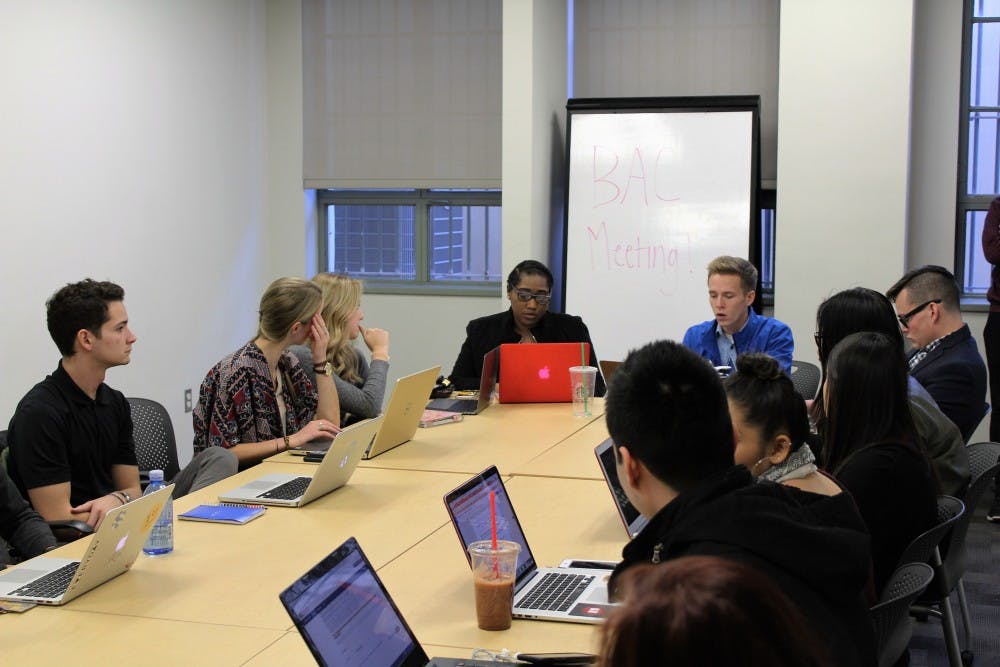Undergraduate Student Government Downtown passed a resolution Friday to oppose a bill recently introduced in the Arizona State Legislature would prevent students from registering to vote using a temporary address while attending a college or university.
HB 2260 was introduced by Arizona State Rep. Bob Thorpe (R-Flagstaff) in the legislature two weeks ago. The bill drew sharp backlash from students and government officials due to the voting restrictions implicated in the legislation.
USGD's Senate Resolution 13 referenced the State Press’s Editorial, which was published four days earlier and detailed the editorial board's opposition to the legislation. The resolution also mentions bipartisan student opposition.
"Arizona State University’s Young Democrats and College Republicans have both expressed concerns on the effects to students that HB 2260 would have," according to the resolution.
Read More: Arizona legislator takes aim at University students in first week of session
Jimmy Arwood, vice president of policy for USGD, spoke in support of the resolution before the floor was open for discussion.
“A wide array of students have expressed opposition to this bill, and I believe in representation of our students,” Arwood said. “We should be making a statement that we too are in opposition to this bill.”
Although the resolution passed, some student legislators were not in favor of the .
Cronkite Senator Bryce Newberry took issue with the breaking of USGD bylaws that require student feedback to be collected before legislation is passed.
“I am concerned that we didn’t go through the feedback procedure that we put into place last semester, and as soon as we start making exceptions to legislation we already passed … it’s a slippery slope,” Newberry said.
The procedure he was referring to was title III, article 5, section 1.2 of the USGD bylaws which states that the Standing Committee on External Affairs is responsible for collecting feedback, reporting its findings and recommendations to the senate and drafting of appropriate legislation.
Barrett Senator Case Smith said timeliness of the resolution was necessary for student's voices to be heard in time.
“I think we collected feedback in the best way possible in the limited time that we had,” Smith said. “I don’t know why students would be opposed to their own voting rights.”
Correction: Due to a reporting error, a previous version of this article incorrectly stated a senator's school affiliation. This version has been updated with the correct information.
Reach the reporter at isaac.windes@asu.edu or follow @isaacwindeschef on Twitter.
Like The State Press on Facebook and follow @statepress on Twitter.




